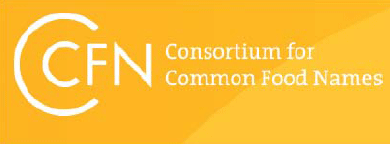
U.S. Dairy Industry Drives Home Concerns on Geographical Indications and Common Food Name Issues During TTIP Stakeholders Forum

The U.S. Dairy Export Council (USDEC), an active member of the international Consortium for Common Food Names (CCFN), today briefed U.S. and EU negotiators on deep-set concerns with the EU's current approach to protections for geographical indications (GIs). The presentation was made during the stakeholder briefings here in conjunction with this week's U.S.-EU talks on the Trans-Atlantic Trade and Investment Partnership (TTIP).
USDEC's Brussels Representative Maike Moellers made three central points to negotiators, points that are also supported by CCFN members. The first was that the approach to GIs used in the EU-Canada agreement is wholly unacceptable to producers that use common food names.
"Since the conclusion of the EU-Canada agreement, we have heard from the EU side again and again that the agreement with Canada on GIs could be a model for TTIP. This is a notion that we absolutely reject," she said. Such demands, she added, "would envisage U.S. producers as well as others in the world relinquishing their right to use long-standing generic food names, such as 'asiago', 'feta', 'fontina', 'munster' and 'gorgonzola'."
Moellers noted that roughly $21 billion in U.S. cheese production uses European-origin names, reflecting the immigrant roots in the U.S. that trace back to many European countries.
Moellers' second point was that GIs can be workable when approached correctly.
"We do believe that products with a very specific geographic designation included in their compound name, such as 'Gouda Holland', can be protected to the benefit of producers and consumers, while the single word 'gouda' clearly remains unrestricted and in free usage," she said.
Thirdly, Moellers noted that EU prohibitions are proliferating around the world, spread within trade agreements - such as recent agreements with South Africa and Morocco - and new registrations, most notably the EU's current movement to register "havarti", a cheese for which an international Codex standard exists.
"As a result of these various efforts," Moellers said, "competition to EU products is eliminated by restricting third-country markets for U.S. exports."
Moellers concluded by again suggesting - as the U.S. dairy industry has done previously - that negotiations on GIs should be dealt with in a separate forum in order to carefully assess the legitimate concerns of both sides, including finding a solution for the reintroduction into the EU market of key U.S. products bearing names that until only recently had been viewed widely throughout the EU as generic - such as U.S.-made "parmesan" and "feta" cheeses.
"We must avoid this issue becoming a stumbling block for an agreement that could otherwise present an unprecedented opportunity to boost free trade," she said.
The full remarks can be found at www.CommonFoodNames.com.
2.4.2015